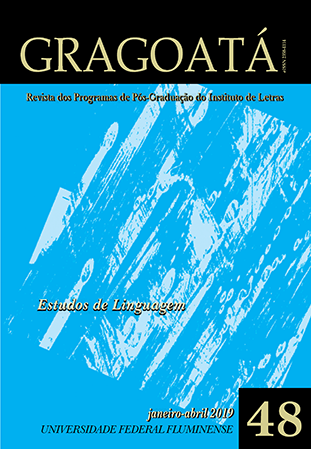Epistemologias do “colonial” e da descolonização linguística: uma reflexão a partir de África
DOI:
https://doi.org/10.22409/gragoata.v24i48.33627Palavras-chave:
colonização, África, língua portuguesa, descolonização linguísticaResumo
Um dos lugares mais efectivos de dominação colonial foi, no caso do colonialismo português, a língua portuguesa, através da qual o negro africano poderia ser considerado cidadão segundo um articulado legal (que se foi aperfeiçoando até chegar ao “Estatuto dos Indígenas Portugueses das Províncias da Guiné, Angola e Moçambique”, 1954). A língua portuguesa foi, assim, o único veículo linguístico de cidadania, sendo restrito o uso das línguas nativas – consideradas, de modo desprestigiante, dialectos – no domínio público formal e oficial, situação que se vem prolongando nas políticas linguísticas dos Estados pós-coloniais. Este texto propõe-se a reflectir sobre essa herança colonial, desvelando os meandros da epistemologia da descolonização assim como as condições do que conta como conhecimento sobre as relações de poder entre as línguas em presença em África (Europeias e nativas), em particular nos Cinco países africanos de língua oficial portuguesa.
Downloads
Downloads
Publicado
Edição
Seção
Licença
AUTORIZAÇÃO
Autores que publicam em Gragoatá concordam com os seguintes termos:
Os autores mantêm os direitos e cedem à revista o direito à primeira publicação, simultaneamente submetido a uma licença Creative Commons Atribuição 4.0 Internacional (CC BY 4.0), que permite o compartilhamento por terceiros com a devida menção ao autor e à primeira publicação pela Gragoatá.
Os autores podem entrar em acordos contratuais adicionais e separados para a distribuição não exclusiva da versão publicada da obra (por exemplo, postá-la em um repositório institucional ou publicá-la em um livro), com o reconhecimento de sua publicação inicial na Gragoatá.
A Gragoatá utiliza uma Licença Creative Commons - Atribuição CC BY 4.0 Internacional.











